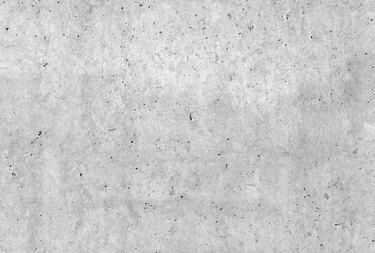Concrete homes offer a number of advantages and disadvantages, just like any other home does. Not unlike brick homes, concrete homes have walls made of concrete bricks that can be left plain or painted. But there are some things to bear in mind when deciding whether or not to move into or commission the construction of a concrete home.

Some Advantages
Concrete homes are common in areas where there is a lot of moisture. Unlike wood, concrete doesn't attract mildew or rot when it's wet for a long period of time. It's also resistant to termites and other critters that damage homes that are constructed with a lot of wood.
Video of the Day
Video of the Day
Concrete homes are also great for areas that are prone to high winds, tropical storms and hurricanes. They won't be easily toppled over during extreme weather and can withstand winds of over 200 miles an hour. They tend to last for centuries if well maintained, and are fire resistant because cement isn't flammable.
They're also ideal for homeowners who want to lower their energy usage and really value an eco-friendly home. The insulation of a concrete home makes it so that warm air from a heater and cold air from central air conditioning won't escape easily. This also makes a concrete home practically soundproof, which is great for parties or for trying to minimize noise pollution from outside.
Some Disadvantages
Concrete homes tend to be a little bit more expensive to build than other homes. It does pay off in energy costs in the long run, but may be out of reach for some potential home owners. The price of concrete fluctuates and will also vary depending on the region, so there isn't a set price for concrete homes across the country. It's best to do research on what prices are like in different areas before setting a specific budget for constructing or buying a concrete home. Concrete homes are also often plain and gray unless a homeowner plans to add facing to the walls or add on a layer of cement that can be painted.
If there's an issue with plumbing in a concrete home and pipes aren't in an accessible part of the structure, some of the concrete will have to be cut in order for a plumber to reach the problem. It's always best to make sure there's a decent drainage system in the house or near any water pipes to avoid major flooding or plumbing issues.
Exteriors and Finishes
The outside of concrete homes doesn't have to be dreary and compound-like. There are a number of paints on the market that adhere to concrete. There are also ways to add facing, such as stucco, to the outside of a home or rocks with cement to make a decorative wall. Ready-made cement overlays are also a great way to play around with the exterior of a concrete home and give it some personality.